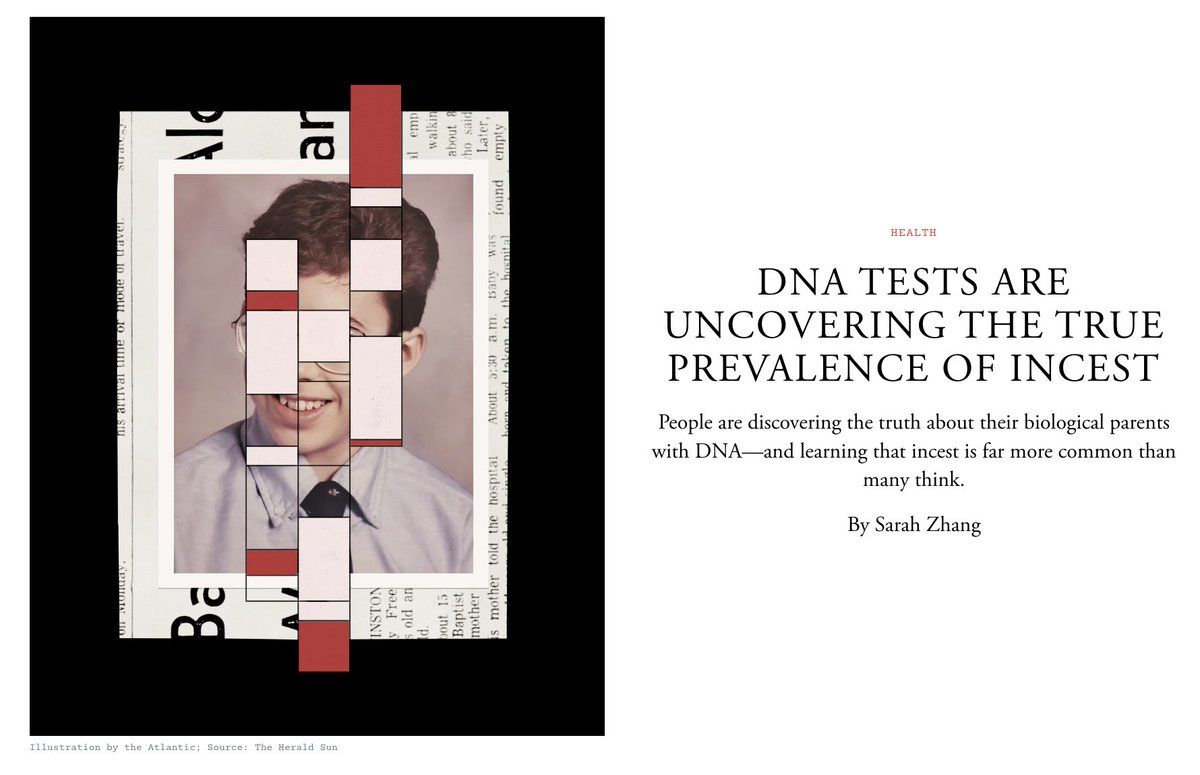
@TheAtlantic staff writer. I cover science, medicine, humans. Say hi at szhang@theatlantic.com
3 subscribers
How to get URL link on X (Twitter) App


 DNA tests have uncovered the surprising prevalence of incest.
DNA tests have uncovered the surprising prevalence of incest. 
https://twitter.com/EndP8riarchy/status/1413534591021953031








